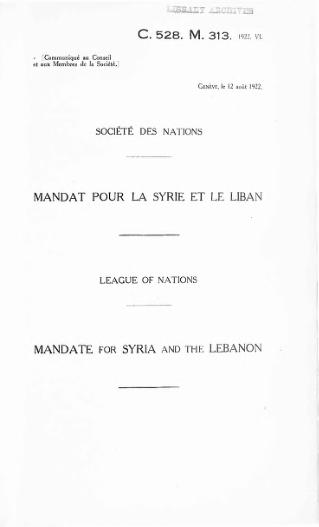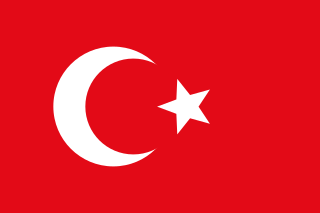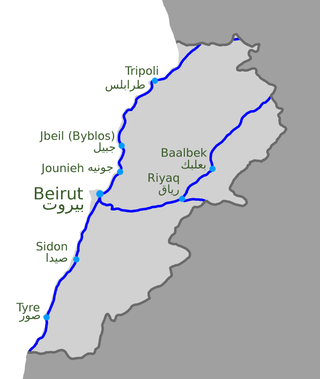Related Research Articles
Regarding the music of Syria, there are certain musical traditions and practices that have been present in Syria longer than others. There have been musical influences introduced into Syria through multiple eras of conquest and influences from surrounding cultures in modern-day Syria. Lying near Egypt and Israel, and connected to southern Europe by the Mediterranean, Syria became host to many distinct cultural musics through trade and route. The music present in Syria is related greatly to poetry, influenced greatly by the Bedouin nomadic tribes, the maqam system in Arabic classical music, as well as influenced greatly by the geopolitical movement and conflict in the Middle East. Syrian music generally has a singer who is accompanied by three or four instruments. The texture is usually thin but can become denser depending on the use of each instrument. Music is tightly linked to poetry in Syria.

SuperStar was an Arabic television show based on the popular British show Pop Idol created by Simon Fuller's 19 Entertainment & developed by Fremantle Media. The show unites the Arab community by democratically choosing the next singing sensation. The show is broadcast worldwide on Future TV, a Lebanese television station. It is also the first Idol franchise to feature contestants from multiple countries.

The Mandate for Syria and the Lebanon was a League of Nations mandate founded in the aftermath of the First World War and the partitioning of the Ottoman Empire, concerning Syria and Lebanon. The mandate system was supposed to differ from colonialism, with the governing country intended to act as a trustee until the inhabitants were considered eligible for self-government. At that point, the mandate would terminate and a sovereign state would be born.

The various nations of the region include the Arabic-speaking countries of the Middle East, the Iranian traditions of Persia, the Jewish music of Israel and the diaspora, Armenian music. Azeri Music, the varied traditions of Cypriot music, the Turkish music of Turkey, traditional Assyrian music, Coptic ritual music in Egypt as well as other genres of Egyptian music in general. It is widely regarded that some Middle-Eastern musical styles have influenced Central Asia, as well as the Balkans and Spain.

The Union of the Armenian Evangelical Churches in the Near East, abbreviated as UAECNE, is an autonomous body of Armenian Evangelical churches comprising 25 congregations throughout Lebanon, Syria, Turkey, Greece, Egypt, Iran, Iraq and Australia.

Arabic is the official language of Syria and is the most widely spoken language in the country. Several modern Arabic dialects are used in everyday life, most notably Levantine in the west and Mesopotamian in the northeast.

The State of Aleppo was one of the six states that were established by the French High Commissioner of the Levant, General Henri Gouraud, in the French Mandate of Syria which followed the San Remo conference and the collapse of King Faisal I's short-lived Arab monarchy in Syria.

Ottoman Syria refers to divisions of the Ottoman Empire within the region of Syria, usually defined as being east of the Mediterranean Sea, west of the Euphrates River, north of the Arabian Desert and south of the Taurus Mountains.

Rail transport in Lebanon began in the 1890s as French projects under the Ottoman Empire but largely ceased in the 1970s owing to the country's civil war. The last remaining routes ended for economic reasons in the 1990s. At its peak Lebanon had about 408 kilometres (254 mi) of railway.
The 2008 Arab Capital of Culture was chosen to be Damascus, Syria. The Arab Capital of Culture is an initiative undertaken by UNESCO, under the Cultural Capitals Program, to promote and celebrate Arab culture and encourage cooperation in the Arab region. The preparation for the festivity began in February 2007 with the establishing of the Administrative Committee for “Damascus Arab Capital of Culture" by a presidential decree.
Faruk Türünz is a Turkish luthier who specializes in ouds and is considered one of the best oud makers. His shop is in Istanbul, Turkey.
This page provides maps and a list of cities and towns during the Syrian civil war.

Mar Assia al-Hakim Church is a Syriac Catholic Church in Al-Jdayde quarter of Aleppo, Syria. The church belongs to the Archeparchy of Aleppo of the Syrian Catholic Church. It was completed in 1500 and is active up to now.
The National Evangelical Synod of Syria and Lebanon (NESSL), also known as Synod SL, is a Reformed denomination in the Middle East. It is a federation of Arabic-speaking congregations, that trace back their origin to the evangelical revival in the 19th century. These churches adopted Reformed theology and Presbyterian church government. This Reformed revival was supported by many Reformed churches in the United States. The Ottoman authorities recognised the Protestant faith in 1848, the first congregations were founded in Beirut, Hasbaya. Later congregations were established in the major cities. The Synod was organised in 1920 with several Presbyteries. There has been a steady growth in new members in recent years.

The Syrian Cultural Caravan is an artistic and cultural movement led by Syrian artists. Started in 2014 as a project called "Freedom for the Syrian People", it took the form of a road trip, taking off from France and continuing across Europe. In face of the success met in 2014, the project became a movement entitled the "Syrian Cultural Caravan". The project aims at bringing a wide diversity of artists together around a multi-format exhibition mixing paintings, photographs, dance, music, film screenings, as well as debates and the sharing of food. The goal of the project is "to promote Syrian civil society and contemporary Syrian art and culture" by debunking the public's expectations. Artists create a platform for debate on which they can offer their own narrative to counterweight the mainstream narrative of the media.

Beit Achiqbash ; is an old Aleppine courtyard mansion built in the mid 18th Century by Qarah Ali (Karaly), a wealthy Christian merchant.

Lena Chamamyan is a Syrian singer-songwriter, known for her soprano voice and unique style, which fuses jazz, Arabic folk music and Western classical music.

Al-Kindi Ensemble is a Sufi musical group founded in 1983 by Julien Jalâl Eddine Weiss. Based in Aleppo, Syria, Al Kindi Ensemble is mostly known for its works on the Arab-Muslim and Sufi musical traditions.
Fayrouz Al Halabiya was a Syrian singer, who was mainly active in Damascus, Beirut and Cairo, and the most famous among the Assyrian singers in the Arab world who were active in the first three decades of the 20th century with the advent of the record industry. The Lebanese singer known today as Fairuz, Nouhad Haddad, adopted the nickname as a sign of admiration for her.
References
- ↑ Official website http://www.mauriceouds.com
- ↑ Official website http://www.abbassioud.com
- ↑ Official website http://www.belhaibaoud.net
- ↑ Official website http://www.chikioud.com
- ↑ Official website https://instagram.com/harmonic_3od
- ↑ Sabah, Zaid (2006) "Amid war's chaos, the fine art of oud making continues", USA Today, 11 May 2006, retrieved 2012-06-15
- ↑ Hendawi, Hamza (2010) "Oud maker labors in secret on Baghdad rooftop", Boston Globe , 29 March 2010, retrieved 2012-06-15
- ↑ Oud
- ↑ Dunston, Lara; Carter, Terry; et al (2008) Syria and Lebanon (Lonely Planet Multi Country Guides), Lonely Planet, ISBN 978-1741046090, p. 115
- ↑ "Zeryab Oud".
- ↑ official Facebook page https://www.facebook.com/MastersofLutherieAmrandAli/
- ↑ Daly, Ross (2009) Instrument Makers and Cases, http://www.rossdaly.gr/en/texts-recommendations/65-instrument-makers-and-cases
- ↑ Official website https://sbd-projets.com/en/
- ↑ El Abdallah, Fadi (2 December 2009). "La Turquie et le monde arabe". Turquie News. Archived from the original on 28 August 2016. Retrieved 4 September 2011.
- ↑ Official website http://www.turkishouds.com/
- ↑ Official website http://www.emirdegirmenli.com/
- ↑ Johnson, Greg (1996) "Instrumental stylings: Electric oud maker searching for niche in traditionalist music market", Los Angeles Times , 9 April 1996, p.D5
- ↑ Official website http://www.johnvergaramusic.com
Chahal classical oud, Australia